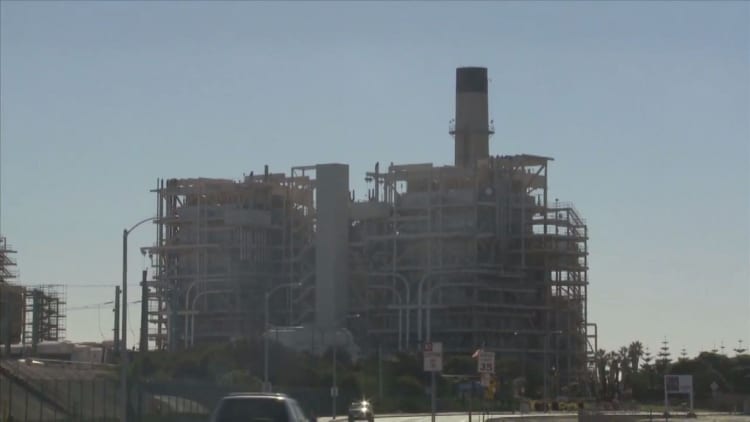The Environmental Protection Agency will overturn the Obama administration's tough new requirements to boost fuel efficiency and cut greenhouse gases from passenger cars.
The Trump administration was widely expected to announce that it would scale back the standards for model year 2022-2025 cars and trucks finalized under President Barack Obama. On Monday, EPA Administrator Scott Pruitt said the agency will revise the rules.
Pruitt did not offer details about the scope of the revision. The so-called corporate average fuel economy, or CAFE, standards are currently set to jump to about 50 miles per gallon by 2025, presenting an engineering challenge to the U.S. automotive industry.
"The Obama Administration's determination was wrong," Pruitt said in a statement. "Obama's EPA cut the Midterm Evaluation process short with politically charged expediency, made assumptions about the standards that didn't comport with reality, and set the standards too high."
The Obama administration finalized the CAFE standards for model year 2022-2025 cars and light trucks a week before Trump took office, well ahead of the April 2018 deadline to complete a review of tougher tailpipe rules.
The decision on Monday sets up a potential legal battle with the state of California, which has vowed to stick by its stringent targets to slash planet-warming carbon emissions from tailpipes.
While automakers have long sought relief from Obama's stringent rules, some industry watchers warn the move could create a complex and costly market for the likes of Ford and General Motors. It could split the U.S. car market in two. In that scenario, California and a dozen other states would keep the higher standards in place and the rest of the nation would follow the federal government's lead.

California has a waiver under the Clean Air Act that allows the state to implement tougher fuel efficiency standards. The fate of that long-standing special treatment under President Donald Trump remains a subject of speculation. Pruitt said on Monday the waiver is still being re-examined.
"Cooperative federalism doesn't mean that one state can dictate standards for the rest of the country," he said.
Congress enacted the CAFE standards in 1975 with the goal of shrinking fuel consumption. The Obama administration proposed new regulations to further erode the nation's appetite for fossil fuels, tackle climate change and bolster the nation's energy security.
The transportation sector accounts for about a quarter of greenhouse gas emissions from human activity in the United States, according to the EPA.
Trump and Pruitt have both questioned the overwhelming consensus among climate scientists that carbon emissions from human activity are the primary cause of global warming.
Environmental groups immediately criticized the move.
"The Trump administration's decision will take America backward by jeopardizing successful safeguards that are working to clean our air, save drivers money at the pump, and drive technological innovation that creates jobs," said Luke Tonachel, director of the Natural Resources Defense Council's clean vehicles and fuels project, in a statement.
But the decision won praise from corners of conservatism and libertarian think tanks that have cheered the president's rollback of Obama-era environmental rules.
"EPA's announcement is good news for consumers who care about safety, performance, and size, as well as fuel economy in the vehicles they drive. This is the first step in many years toward reducing government control over what kinds of cars people can choose to buy," said Myron Ebell, director of the Competitive Enterprise Institute's Center for Energy and Environment and head of the EPA's transition team under Trump.
WATCH: How Shell plans to cut carbon emissions in half by 2050



